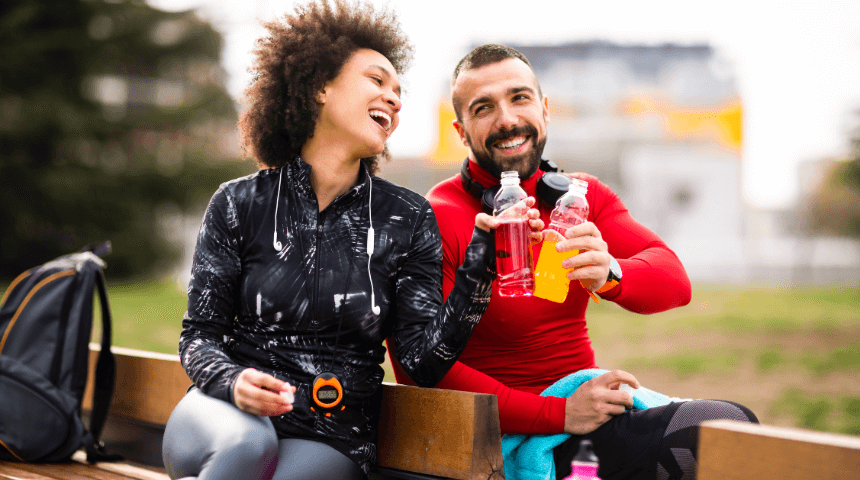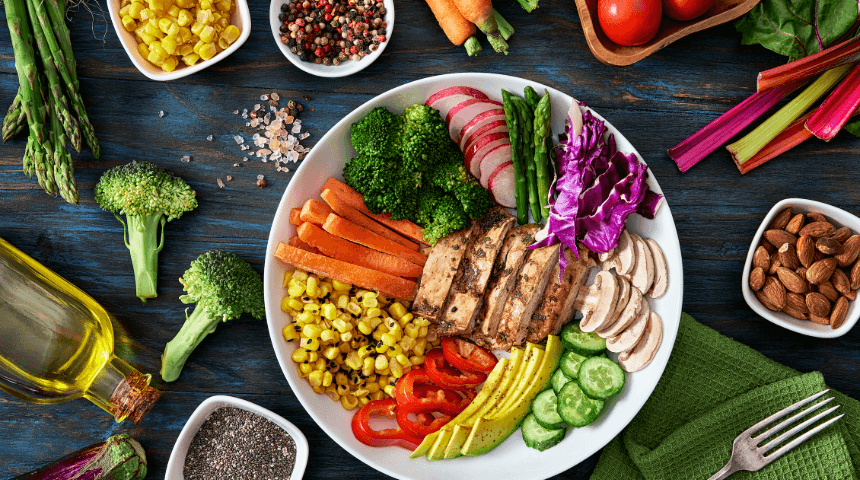An overactive bladder can be inconvenient and embarrassing because you don’t have control over when you need to go. But eating certain types of foods – and avoiding others -- can help with your symptoms.
Overactive Bladder and Urgency Incontinence
Overactive bladder (OAB) is a common type of urinary incontinence characterized by an urgent need to urinate. When your bladder is healthy, you’re able to wait to urinate when your brain signals your body that your bladder is full. With overactive bladder, you can’t wait — and you may feel an urgent need to go even when your bladder isn’t full.
Also called urgency incontinence, overactive bladder affects more than 40 percent of women and 30 percent of men in the United States. In addition to a sudden and uncontrollable urge to urinate, symptoms of overactive bladder may include:
● Leaking urine when you feel a sudden need to go
● Urinating frequently throughout the day
● Waking from sleep to urinate more than once a night, also called nocturia.
Best Foods for Bladder Health
When it comes to eating a bladder-friendly diet, it’s all about choosing foods to soothe your symptoms rather than exacerbate them. This means mild, non-acidic foods that aren’t heavily processed. Some of the best foods to eat for people with an overactive bladder are:
Vegetables
- Asparagus
- Cucumbers
- Carrots
- Celery
- Lettuce
- Potatoes/sweet potatoes
- Green beans
- Winter squash
- Broccoli, kale and other cruciferous vegetables
Fruits
- Pears
- Bananas
- Berries
- Apples
- Grapes
- Watermelon
Proteins (choose lean options when possible)
- Beef
- Pork
- Chicken
- Turkey
- Fish
- Tofu
- Eggs
Whole grains
- Rice
- Oats
- Quinoa
- Bread
Legumes
- Beans
- Lentils
- Chickpeas
Nuts
- Almonds
- Cashews
- Peanuts
Beverages
- Water
- Herbal tea (caffeine-free)
With so many bladder-friendly foods on the menu, eating to help control overactive bladder symptoms is easier than you might think.
Avoid These Overactive Bladder Trigger Foods
Just as important as knowing which foods to eat to support bladder health is knowing which ones to avoid. These foods are irritating to the bladder, meaning they could make your overactive bladder symptoms worse:
- Spicy foods
- Citrus
- Tomatoes and tomato-based products, like spaghetti sauces and ketchup
- Chocolate
- Foods containing artificial sweeteners or preservatives
- Sugary foods
- Raw onion
- Carbonated beverages like sparkling water and soda
- Sports drinks
- Alcoholic beverages
- Coffee and other caffeinated beverages
If you’re feeling discouraged about how many foods can potentially cause bladder irritation, don’t be! What’s problematic for one person may not be for another. A good way to identify your personal triggers is to keep a food journal, writing down what you eat and drink and then noting any irritation or overactive bladder symptoms you may experience. Once you determine which foods cause problems for you, you can create a personalized diet to support your bladder.
But there’s one thing everyone with overactive bladder should cut down on: caffeine. Caffeine directly stimulates the bladder, so if your bladder is already unstable and pumping too often, adding caffeine to the mix will only make the situation worse. Even if it takes you three cups of coffee to wake up in the morning, it only takes a small amount of caffeine to cause your bladder to contract. People with overactive bladder should do their best to minimize their caffeine intake.
Wondering whether to see a doctor about your overactive bladder symptoms? If your bladder is constantly irritated no matter what you eat, or if your overactive bladder symptoms are otherwise affecting your quality of life, consider reaching out to your doctor or a urologist. Together, you can figure out a treatment plan that works for your lifestyle.
Choose to Stay in Touch
Sign up to receive the latest health news and trends, wellness & prevention tips, and much more from Orlando Health.
Sign Up




